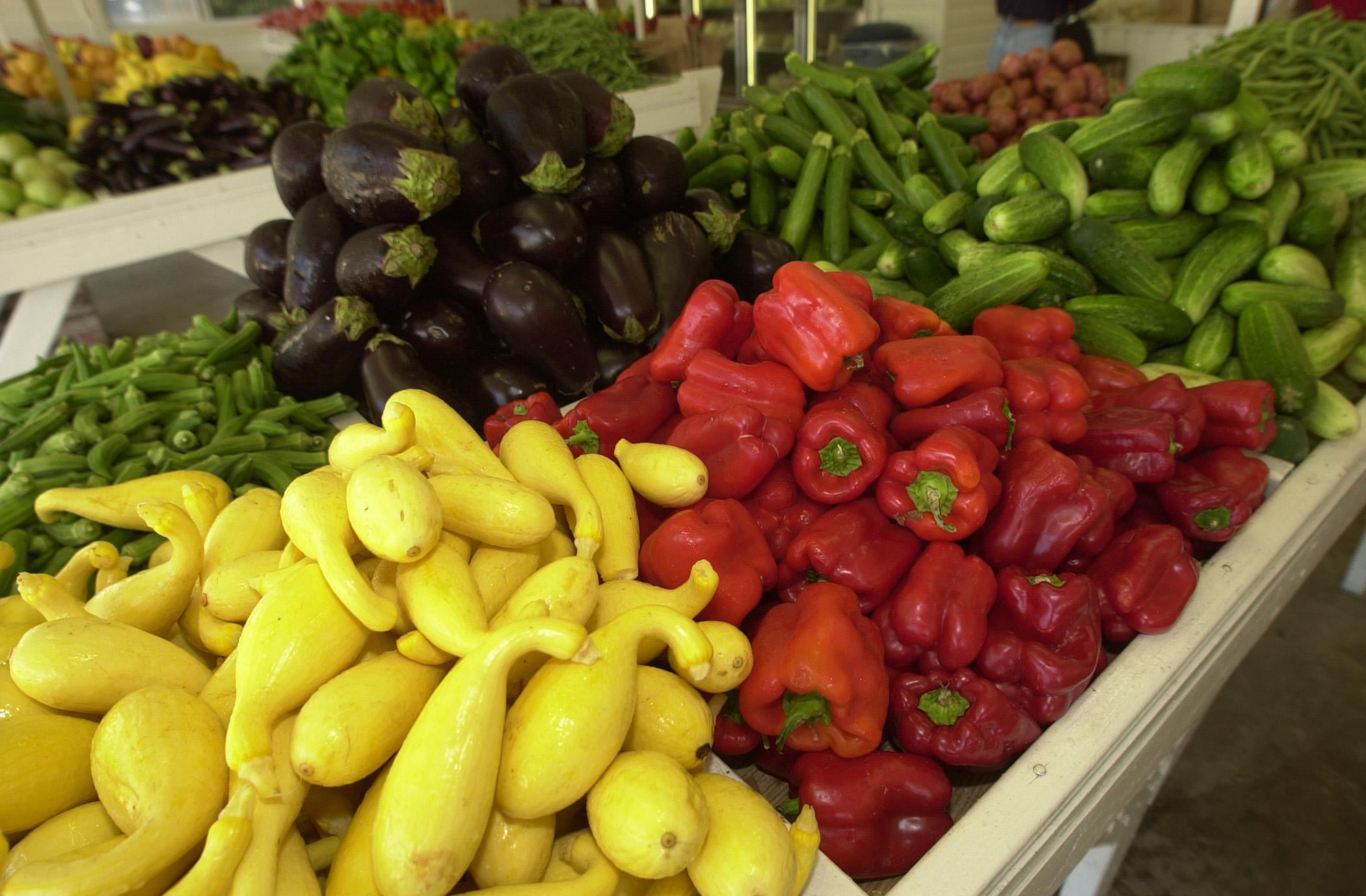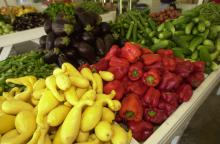Information Possibly Outdated
The information presented on this page was originally released on January 21, 2014. It may not be outdated, but please search our site for more current information. If you plan to quote or reference this information in a publication, please check with the Extension specialist or author before proceeding.
Farmers markets provide opportunity for growers
MISSISSIPPI STATE – Finding a special product that consumers want can help growers stand out in the increasingly crowded farmers market.
Bill Evans, associate research professor with the Mississippi Agricultural and Forestry Experiment Station at the Truck Crops Branch Experiment Station in Crystal Springs, said a growing number of consumers want fresh, local produce, and small growers can help provide it.
“Because of the increasing demand, we have new markets coming on the scene every spring, it seems -- and new growers, too,” Evans said. “The organic and eco-conscious niches are also expanding, and small growers can serve these well.”
Evans said consumer tastes are expanding, which opens up markets for many minor and unique crops, such as striped eggplants, heirloom tomatoes and “weeds” for salad greens. Growers should consider what their local clientele wants when making planting decisions.
“Grow what you know, but also grow for your market,” he said. “Small towns and traditional markets still want traditional crops. Some urban and upscale markets want ‘the next big thing,’ ethnic produce or other items that extend far beyond our traditions of yellow squash, greens and tomatoes.”
Evans suggested beginning growers start out with something easy to grow and popular, such as mustard, turnip and collard greens and squash.
He said some of the most profitable crops are also the most difficult to grow.
“Tomatoes can be a challenge but are great sellers,” he said. “Beans and peas are fairly easy, but they’re not big money makers. Fruits are in demand, but they are almost all perennial crops and need a lot of time and management.”
Jeff Wilson, regional Extension horticulture specialist for the North Mississippi Research and Extension Center, said new growers should start out small while learning what local customers want and how to calculate input costs.
Wilson said new growers benefit by attending conferences and workshops to learn business tips from experienced growers.
“Growing the crop is the easy part,” he said. “You must build a customer base. The best thing to do would be to attend educational programs to learn all you can before starting. I would also visit markets and see what others are doing.”
Evans said new growers should contact local farmers markets early in the planning process to learn market regulations.
“A good market manager can help a new grower get off to a good start,” he said. “I am a big proponent of growers respecting the privilege of growing food for others by keeping the produce in safe condition. There are also some great food safety workshops in and around Mississippi these days.”
Evans said the “Mississippi State University Extension Service Garden Tabloid” and “Southeastern Vegetable Production Guide” contain useful information on planning crops. County Extension offices can direct growers toward other resources for the growing and business sides of the industry.
“Other growers will be happy to help you, too,” he said. “Have fun with it. Unless you plan to grow into a true, full-time farmer, this is a sideline business that should make you smile at the beginning and at the end of the day.”
For more information on farmers markets, visit http://farmersmarkets.msstate.edu, https://twitter.com/FarmersMarketMS or https://www.facebook.com/FarmersMarketsMS.




